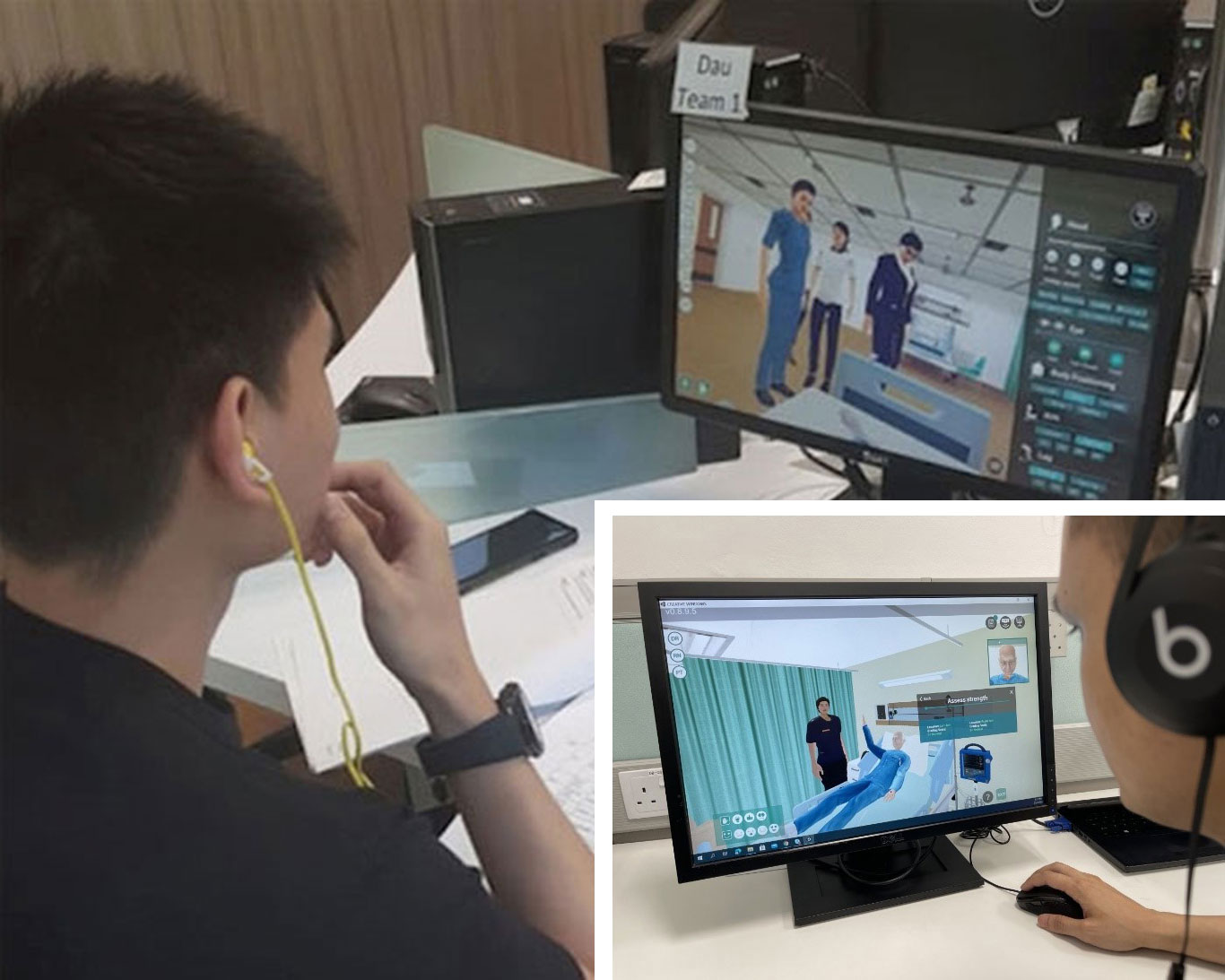
Nursing students using a virtual reality sepsis screening tool..
It is estimated that close to 5,000 deaths were attributed to sepsis from pneumonia and urinary tract infections in 2019. This is an approximate 13% increase from cases reported in 2012.
In the healthcare system, nurses play a pivotal role in the early recognition and management of sepsis. Nurses are uniquely positioned to make the first crucial assessment in detecting sepsis and implementing intervention to prevent deterioration.
With an eye on their professional, continuing education, Research Fellow Dr Chua Wei Ling from the Alice Lee Centre of Nursing Studies, National University of Singapore, conducted several studies on the recognition and management of sepsis, to better equip nurses with the necessary skills.
Impact of sepsis education for healthcare professionals and students on learning and patient outcomes: a systematic review, published in the 2022 Journal of Hospital Infection, found that interventions delivered through an active learning approach, such as game-based learning, generally produced greater gains than didactic teaching. It led to the development of the Sepsis Interprofessional Education (IPE) programme for NUS undergraduate medical and nursing studies, which adopts a blended learning approach involving virtual telesimulation.
Another study, The effect of a sepsis interprofessional education using virtual telesimulation on sepsis team care in clinical practice: A mixed-methods study, highlighted how medical and nursing students demonstrated a significant improvement in sepsis knowledge and team communication skills, post-intervention.






